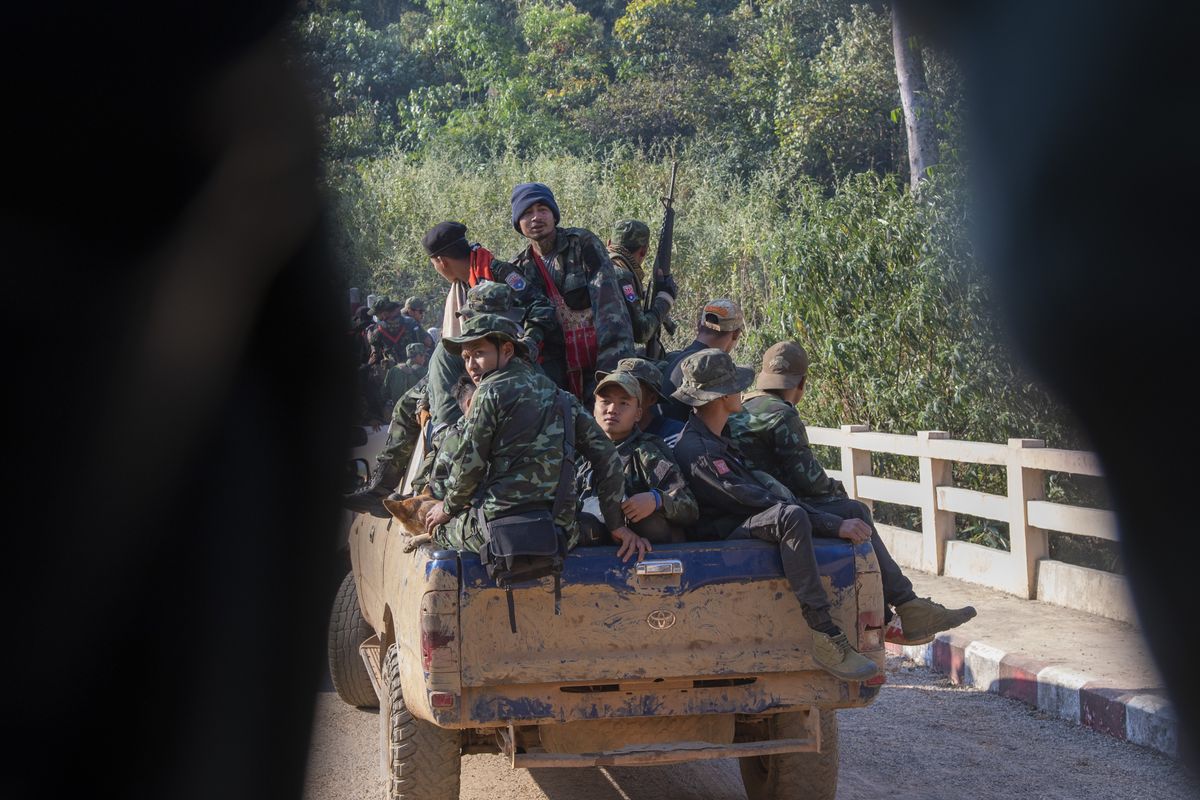Myanmar, formerly known as Burma, has largely disappeared from the news since its military junta was replaced by a relatively reformist government after 2015 elections, and the country opened to the outside following an Obama administration push.
Although no longer the pariah it was in past years, longstanding persecution of Myanmar’s Rohingya Muslim minority continues to raise concerns for human rights activists and other outsiders. The United Nations, in a report last Friday, said widespread human rights violations against Rohingyas by Myanmar security forces in the country's northern Rakhine state indicate the likelihood of crimes against humanity.
The report was released by the Office of the UN High Commissioner for Human Rights, based on interviews with people who fled Myanmar after attacks on a border post in early October, subsequent military operations, and a lockdown. It documents mass gang-rape, killings, brutal beatings, disappearances and other human rights violations by security forces.
The question of whether the Rohingya struggle presents an opportunity for ISIS or al Qaeda style groups arises periodically, and it did after the October attacks.
In December, the International Crisis Group issued a report, “Myanmar: A New Muslim Insurgency in Rakhine State,” that said the “The deadly attacks on Border Guard Police (BGP) bases in Myanmar’s northern Rakhine State on 9 October 2016 and the days following, and a serious escalation on 12 November when a senior army officer was killed, signify the emergence of a new Muslim insurgency there.”
“The insurgent group, which refers to itself as Harakah al-Yaqin (Faith Movement, HaY),” the report said, “is led by a committee of Rohingya émigrés in Saudi Arabia and is commanded on the ground by Rohingya with international training and experience in modern guerrilla war tactics. It benefits from the legitimacy provided by local and international fatwas (religious judicial opinions) in support of its cause and enjoys considerable sympathy and backing from Muslims in northern Rakhine State, including several hundred locally trained recruits.”
ICG went on to call the emergence of the group “a game-changer” in the government’s efforts in Rakhine State, adding that while the population has never been radicalized and most members have rejected violence, “HaY would not have been able to establish itself and make detailed preparations without the buy-in of some local leaders and communities.”
Despite “indications of some training and solidarity,” ICG said HaY does not seem to have a transnational jihadist or terrorist agenda.
“But there are risks that if the government mishandles the situation, including by continued use of disproportionate force that has driven tens of thousands from their homes or across the border to Bangladesh, it could create conditions for further radicalising sections of the Rohingya population that transnational jihadists could exploit to pursue their own agendas in the country,” the report said.
Wakar Uddin, a professor at Penn State University and the Director General of Arakan Rohingya Union, lauds the ICG report’s recommendations, but told The Cipher Brief it “paints an alarming picture with apparent assumption that the HaY is connected to international groups that have provided sophisticated guerilla war tactics.”
“This,” he says, “unfortunately feeds into the Myanmar government’s narrative linking the Rohingya cause to international jihadism as a justification for the recent obliteration of Rohingya villages, causing more than 100,000 people to take refuge in Bangladesh and Rohingya villages in Maungdaw area, and its armed forces committing crimes against humanity.”
But Laith Alkhouri, a co-founder and director at Flashpoint, argues that while the Rohingya struggle is a regular topic of discussion on jihadist message boards, Myanmar has never been a likely ground for ISIS or al Qaeda operations.
Steve Hirsch is senior national security editor at The Cipher Brief.













